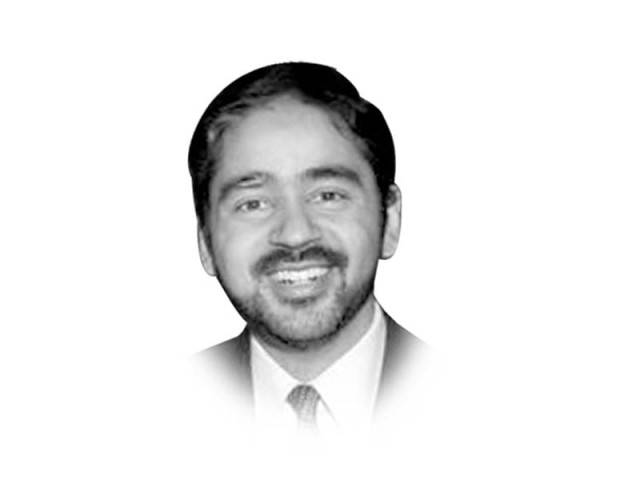Some are more equal
The reality, which is not a secret, is to restrict the freedom of expression and engagement

In her award-winning memoir, Street Without a Name, poet and author Kapka Kassabova vividly portrays what it was like growing up in communist Bulgaria. With both a deep sense of irony and sharp wit, she describes the early years of her life in a state where the citizens were told that utopia was just around the corner. Around the borders of her country, as in other states in the orbit of the Soviet Union, there was a fence; a physical barrier separating the country from its neighbours. The official position — repeated ad nauseum — was that the fence was there to protect the hardworking, patriotic and selfless citizens of Bulgaria from the evil, imperialist and counter-revolutionary conspirators that were lurking right outside. The revolution and its fruits had to be preserved and protected. The reality, as Kapka and so many others in the Soviet satellite states were to find out in due course, was exactly the opposite. The fence was not there to protect the people of Bulgaria from the evil outside, it was to stop them from leaving the misery within. There was another irony in the fenced world of Bulgaria. The militarised perimeter was there for all comrades, but there were a few notable exceptions. Those notable exceptions were often the notables in the communist party hierarchy.
As a digital fence, barring access to information and social media, was erected around the masses last week, I could not help but think of similarities with Kapka’s experience. As has happened in the past in successive governments, the official argument is to protect the feeble minds of the public from the evil of the internet or social media. The reality, which is not a secret, is to restrict the freedom of expression and engagement. While the issue of what is acceptable speech and what is not continues to a topic of deep, constructive and thoughtful discussions around the world — this most recent instance had nothing to do with that critical debate. During the recent government enforced X (formerly Twitter) blackout, there were tweets by several government officials describing the great progress that has been made in several sectors (democracy, elections, IT, etc.) in the last few months. Apart from the disputed nature of those achievements, it was both sad and ironic that these congratulatory Twitter announcements (in English!) were made with the help of a VPN service on a platform that most people in the country could not access. Who is the audience, I wondered? In a country where George Orwell has become popular (for very obvious reasons), I could not help but admire his prophecy about some being more equal than others.
It would be inaccurate to suggest that the Orwellian worldview about who is mere equal and who is more equal is somehow a brand-new addition to our world, or is present only among those in power. It unfortunately envelopes the privileged across the country, regardless of their political affiliation or their status in the cabinet. As we saw during the campaign to deport Afghans that started five months ago, there was strong public support to send everyone deemed “illegal” out of the country, including those who were born in the country. When some argued that Pakistan guarantees birthright citizenship, the reaction was that this privilege could not, and should not, be extended to Afghans. An everyday manifestation, the same issue is seen in urban slums of Karachi that house hundreds of thousands of stateless Bengalis and Biharis, most of whom were born in the country. There is simply no interest to consider them worthy of citizenship. During the most recent political campaigns and slogans, manifestos and promises, there was dead silence on this issue. It is unlikely to change in the coming months. This, as we know, is just one example of the theoretical equals and the real equals of the society.
As we parse and pick up the pieces of elections and the political process, we should also wonder what we mean by rules, and the fences we build around those rules, and who gets to live within, and outside those fences.
Published in The Express Tribune, February 27th, 2024.
Like Opinion & Editorial on Facebook, follow @ETOpEd on Twitter to receive all updates on all our daily pieces.













COMMENTS
Comments are moderated and generally will be posted if they are on-topic and not abusive.
For more information, please see our Comments FAQ